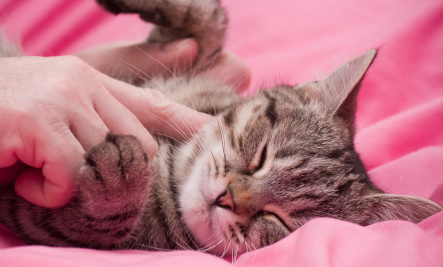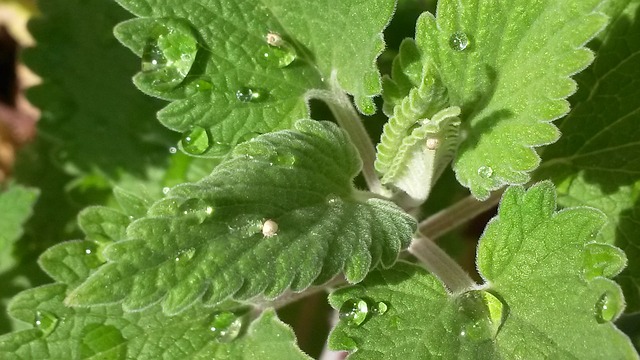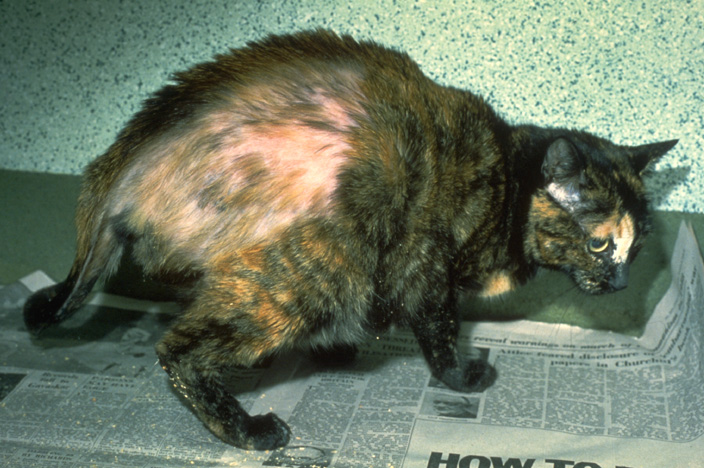Hairloss or Alopecia is a nightmare for any cat parent. Whether your kitty loses hair in certain spots or has her entire coat thinned out, the experience is no fun.
Not only does it affect the physical appearance of the cat but it also signifies a deeper problem.
Cats suffer alopecia for many reasons including flea infestations, poor hygiene, medical conditions, poor diet, and skin disease.
Sometimes your cat has an allergy and scratches certain spots on repeat causing baldness.
Luckily, there are many treatment options for treating hair loss in cats. Many of them are over-the-counter drugs designed to take care of specific issues. These are effective but often bear side effects.
If you want to go natural, there are home remedies to consider. We have rounded 10 effective home strategies for treating cat hair loss.
1. Diet
When your cat has bald spots in her beautiful coat, you rarely think about her diet being the cause.
However, the truth is that a poor diet can trigger baldness and hair thinning in cats.
When the pet doesn’t get all the needed nutrients (vitamins, proteins, minerals, and more) she may lose her hair.
Too little protein especially damages fur. In such a case, an all-around rich diet will solve the problem.
Check your kitty’s food requirement charts and find out what’s missing then adjust accordingly.
Besides enriching your kitty’s diet, you can also confirm whether she’s allergic to certain foods.
Put her on a hypoallergenic diet for a few weeks and see if the problem resolves.
If yes, it suggests that a specific food (s) introduces allergens to her body.
2. Citrus Solution

Flea infestation is one of the major causes of baldness in cats. The reason is that the crawlers cause itching.
Severe cases cause felines to scratch the spots in question endlessly.
Scratching is often accompanied by intense licking. Ultimately, affected areas will experience alopecia.
The citrus solution is one of the proven remedies for flea infestations. These nasty bugs hate the scent of any citrus fruit especially lemon and its cousins.
Simply cut a few slices of lemon and throw them in a pan with boiling water.
Let it sit overnight. In the morning, spray a generous amount of the solution in your cats especially on the bald spots.
Avoid spraying it on the kitty’s ears and eyes. Do it repeatedly for a few days.
The infestation should clear and with it baldness.
3. Apple Cider Vinegar
Another powerful solution for treating baldness caused by fleas is apple cider vinegar.
Like citrus solutions, fleas hate the scent of ACV. While it may not kill the bugs, it will definitely drive them away. This way, your furbaby can stop scratching and have a coat full of hair.
To make the vinegar solution, mix equal parts of it and water. Pour the solution into a spray bottle and apply a generous amount to the cat.
4. Feline Massage

Cats with arthritic pain are also likely to scratch themselves. They do that to try and alleviate the discomfort. Often, this results in hair loss.
A feline massage can help reduce the pain greatly and lower the intensity of licking and scratching.
The best way to give a kitty a massage is to do it away from the glaring eyes of people and pets.
Cats prioritize silence over everything else, so make sure all electronic devices in the room are off.
Begin with gentle downward strokes following the direction of the fur.
With one hand on the kitty, work the other one on her trunk, head, outer legs, and tail.
Massage her muscle groups gently but firmly while avoiding any injured area.
A feline massage helps with arthritic pain and relieves stress as well.
5. Behavioral Therapy
Speaking of stress, cats also suffer the loss of hair when they are anxious.
These beauties are very sensitive and can easily get stressed with things around them. These include moving to a new home, placing the food bowl in a different position, and changes in feeding routines.
To counteract this, behavioral therapy is necessary. An expert in this area will identify the cause of stress in your cat and find solutions to get rid of it.
For a cat that over grooms herself as a result of anxiety, this strategy will also work.
6. Brewer’s Yeast Tablets
Brewer’s years contains thiamine whose taste fleas find very repulsive.
When you add some of it to your kitty’s food, it will release thiamine in her blood or skin upon ingestion.
Fleas on the body of the kitty will be automatically repelled by this.
Yeast is readily available in grocery stores, online sources, and health food stores.
You can buy it as powder and sprinkle some of it on your dog’s food.
Tablets can be dissolved in water and added to cat food.
Sadly, some cats are allergic to it. If yours is one of them, stay away from it.
7. Garlic

Garlic is so beneficial around the home. From treating colds to cooking food to repelling bugs, this natural herb is a go-to for many homeowners.
Turns out garlic can also treat infections caused by many parasites including Cryptococcus, Candida Torulopsis, and Trichophyton. These fungi can cause itching and scratching which in turn trigger baldness in cats.
To make the treatment, crush a few cloves of garlic and blend them up along with some coconut or olive oil.
Apply the resulting paste on the affected areas and cover them with gauze.
Leave the paste on the skin for two or so hours then rinse.
Repeat this treatment twice daily until any sign of skin irritation is gone.
If garlic triggers redness, swelling, or stinging, rinse it off and consider other treatments.
8. Natural flea bath
Flea baths are also effective flea treatments for cats and other pets. They are designed to repel fleas thus getting of your cat’s need to scratch.
Natural flea baths can be made by mixing a gentle organic shampoo, some freshly squeezed lemon, water, and essential oil.
Bathe your furbaby with this natural product weekly for the best results.
9. Catnip

Another stress and anxiety treatment, catnip can act as a home remedy for Alopecia in cats.
When ingested, it acts as a powerful sedative reducing stress, anxiety, and depression.
Catnip has a specific essential oil that becomes a pheromone and a relaxant in the cat’s body.
Its effects are somewhat similar to those of cannabis for humans. If your cat is stressed, this natural herb can come in handy.
10. Chamomile
Drinking a cup of chamomile tea before bed can help you relax. That is because the herb possesses great anti-anxiety properties.
A stressed and anxious cat that grooms herself too much can benefit from the herb as well.
Specific substances in Chamomile travel to the cat’s brain and promote stress and relaxation.
Closing Thoughts
Is your sweet kitty less furry of late? Seasonal shedding is normal but if she sheds a ton of hair, there might be an issue.
This can range from over-grooming to skin diseases to poor health.
No matter the cause, a cat that’s losing hair needs help. If nothing is done, the problem will escalate.
The strategies suggested here are effective and simple. As usual, if nothing works, visit the pet’s clinic for expert help.
Related Post: How many Hairs are on a Cat?

Hi! I am Eleanor Price. I started this website after my cat, Louie, almost died from a case of botulism (a type of food poisoning often caused by bacteria that grow on food items). Turned out that my cat’s diet was the problem. I have made it my duty to provide the best information and recommendations about everything cat lovers need to know about their felines’ health and wellbeing. My goal is to find the most informative content on anything feline-related and share it with fellow hardworking kitty lovers.

